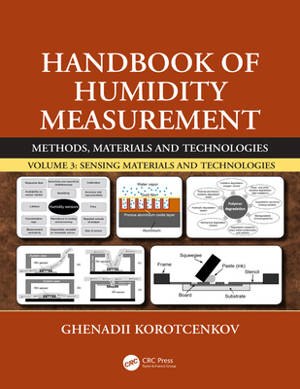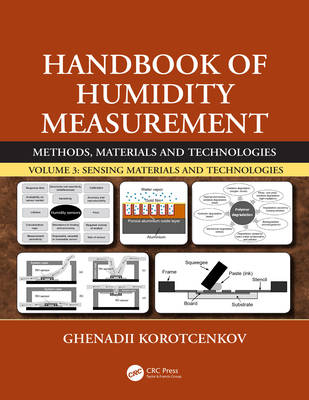
- Retrait gratuit dans votre magasin Club
- 7.000.000 titres dans notre catalogue
- Payer en toute sécurité
- Toujours un magasin près de chez vous
- Retrait gratuit dans votre magasin Club
- 7.000.0000 titres dans notre catalogue
- Payer en toute sécurité
- Toujours un magasin près de chez vous
Handbook of Humidity Measurement, Volume 3
Sensing Materials and Technologies
Ghenadii KorotcenkovDescription
Because of unique water properties, humidity affects materials and many living organisms, including humans. Humidity control is important in various fields, from production management to creating a comfortable living environment. The range of materials that can be used in the development of humidity sensors is very broad, and the third volume of the Handbook of Humidity Measurement offers an analysis on various humidity-sensitive materials and sensor technologies used in the fabrication of humidity sensors and methods acceptable for their testing.
Additional features include:
numerous strategies for the fabrication and characterization of humidity-sensitive materials and sensing structures used in sensor applications,
methods and properties to develop smaller, cheaper, more robust, and accurate devices with better sensitivity and stability,
a guide to sensor selection and an overview of the humidity sensor market, and
new technology solutions for integration, miniaturization, and specificity of the humidity sensor calibration.
Handbook of Humidity Measurement, Volume 3: Sensing Materials and Technologies provides valuable information for practicing engineers, measurement experts, laboratory technicians, project managers in industries and national laboratories, and university students and professors interested in solutions to humidity measurement tasks. Despite the fact that this book is devoted to the humidity sensors, it can be used as a basis for understanding fundamentals of any gas sensor operation and development.
Spécifications
Parties prenantes
- Auteur(s) :
- Editeur:
Contenu
- Nombre de pages :
- 482
- Langue:
- Anglais
Caractéristiques
- EAN:
- 9781138482876
- Date de parution :
- 04-02-20
- Format:
- Livre relié
- Format numérique:
- Genaaid
- Dimensions :
- 210 mm x 279 mm
- Poids :
- 1459 g

Les avis
Nous publions uniquement les avis qui respectent les conditions requises. Consultez nos conditions pour les avis.






